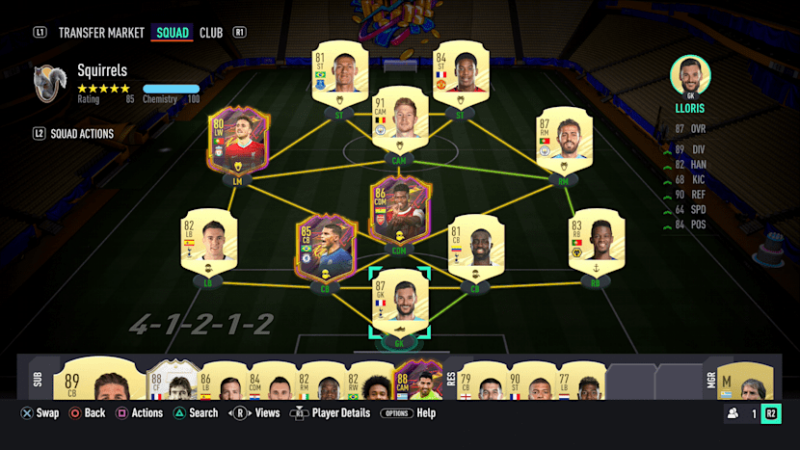Big-name publishers see NFTs as a big part of gaming’s future

Some of the biggest publishers in gaming are using recent earnings calls to express bullish optimism about the concept of non-fungible tokens (and the blockchain more generally) being a part of their future business in one way or another.
Ubisoft led off this microtrend in an earnings call late last week. As reported by the International Business Times, Ubisoft CEO Yves Guillemot told investors and analysts that he believes the blockchain is “very attractive for the long term” and could represent a “revolution” in the industry.
Guillemot expressed particular interest in NFTs’ ability to help enable “play-to-earn” models, where in-game items gained through normal gameplay can be sold for a profit. That model is already in use by early NFT games like Axie Infinity, in which players (especially those in developing countries) can earn monetizable cryptocurrency by battling Pokémon-style beasts against each other. Guillemot said that kind of model “will enable more players to actually earn content, own content, and we think it’s going to grow the industry quite a lot.”
In a summary document accompanying the earnings announcement, Ubisoft also pointed out that the company is a founding member of the Blockchain Gaming Alliance, and it participated in a recent funding round for blockchain licensing company Animoca Brands. This experience gives Ubisoft “the perspective to reflect on the best ways to overcome blockchain’s initial limitations for gaming around sustainability and scalability,” the company wrote.
NFT Ultimate Team?
Ubisoft was followed this week by Electronic Arts, whose CEO Andrew Wilson said in an earnings call that fans of its FIFA games “want more digital experiences outside the game—esports, NFTs, broader sports consumption—and they want us to move really, really quickly.”
The FIFA game series (whose exclusive license with EA is currently up in the air) already makes a large percentage of its revenue by selling collectible cards for the game’s Ultimate Team mode, which some countries consider illegal gambling. While Ultimate Team has served as a fine money-maker for EA without the use of blockchain technology, EA seems curious about how NFTs can help the mode and other in-game collectibles make more money.
“As a company, we have been leaders in the creation of digital content that has real collectible value in the embedding of that content as part of live services,” Wilson said. “So still early to tell [for NFTs], but I think we’re in a really good position, and you should expect us to kind of think more innovatively and creatively about that on a go-forward basis.”
While Wilson said he thinks NFTs “will be an important part of the future of our industry,” he allowed that it’s “still early to kind of figure out how that’s going to work.”
“Anything that brings more people in and engages those people for more time in the context of the entertainment it would create—I think it’s a good thing over time,” he added. “I think the play-to-earn or the NFT conversation is still really, really early, and there’s a lot of conversation. And there’s at some level a lot of hype about it.”
Too much speculation?
The same general position was shared by Take-Two CEO Strauss Zelnick. In a chat with GamesIndustry.biz this week, Zelnick said bluntly that “if you believe in collectible physical goods, I don’t know why you wouldn’t believe in collectible digital goods.” While NFTs aren’t 100 percent necessary to track and verify those digital goods, Zelnick said they are “one way… to authenticate the fact that something singular is rare [online].”
That said, Zelnick expressed some caution about the extreme level of speculation he sees in the current market for NFTs. “What I don’t believe is that just because something is digital or an NFT that it suddenly has value and/or has value that will be increased in the future,” he said. “And I think that’s the problem. NFTs, because they’re related to the blockchain as currently contemplated, and because some have gone for a lot of money, are seen by some as just another opportunity to invest in a speculation that some think will only go up. And speculations don’t just go up; they come down, too.”
“For an NFT to be valuable and durable, it has to be found at the intersection of rarity and quality, of rarity and value,” he continued. “And there’s rarity for sure in all NFTs, but I’m not sure there’s value.”
https://arstechnica.com/?p=1810434